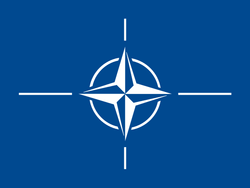News Release from WindEurope
Wind Industry Profile of
Baltic Sea countries pledge closer collaboration to secure critical offshore energy infrastructure
The Energy Ministers of 8 Baltic Sea countries – Lithuania, Denmark, Estonia, Finland, Germany, Latvia, Poland and Sweden agreed the Vilnius Declaration, pledging closer collaboration to secure critical offshore energy infrastructure in the Baltic Sea region. This comes after the Russian invasion of Ukraine and various acts of sabotage to energy infrastructure in the Baltic Sea have created new security concerns. The signatories commit to deter possible malign activities against offshore and underwater infrastructure within NATO and EU.
Today eight Baltic Sea countries, the European Union and representatives of NATO, the European Agency for the Cooperation of Energy Regulators (ACER), European transmission system operators (TSOs) and the European wind industry met in Vilnius for the Baltic Sea High Level Energy Security Meeting 2024.
The Baltic Sea countries have embarked on a rapid expansion of offshore wind and transmission capacity. Already in 2023 Lithuania, Denmark, Estonia, Finland, Germany, Latvia, Poland and Sweden committed to increase offshore wind in the Baltic Sea from 3.1 GW today to 19.6 GW by 2030.
The Vilnius Declaration agreed today reaffirms the countries’ determination to rapidly implement the actions outlined in the EU Wind Power Package to unlock the Baltic Sea’s “vast untapped resources of offshore wind”. The countries pledge to decarbonise their energy systems “as soon as possible”. They want to collaborate in phasing out Russian fossil fuels and replacing them in particular with competitive and home-grown renewables.
The signatories acknowledge the “immense potential” of offshore wind in the Baltic Sea for decarbonisation, diversification, electrification and the production of renewable hydrogen. They want to develop a strong and resilient wind energy supply chain in the Baltic Sea countries to meet the expected increased demand for offshore wind projects. This includes investments in grids and port infrastructure.
Renewables are now a matter of European security
Renewables are now more than ever a matter of European security – both energy security and national security.
The Russian invasion of Ukraine and attacks on energy and telecommunications infrastructure in the region have changed Europe’s security concerns. They have led to the clear recognition that Europe needs to strengthen its energy security and step up its efforts to protect critical offshore energy infrastructure.
Giles Dickson, WindEurope CEO, said: “Renewables are critical infrastructure. We must make them secure. The wind industry is already helping the military to protect energy infrastructure – and to support national security more broadly. By exchanging data, hosting relevant technology and supporting the operation of radar. The NATO is doing excellent work here already. We encourage governments to build physical, cyber and data security into their procurement of energy equipment, including the qualification criteria they apply to who can build wind farms.”
To strengthen Europe’s resilience against new forms of hybrid and cyber warfare the Baltic Sea countries now want to increase the security of offshore and underwater infrastructure and deter possible malign activities against them within NATO and EU.
David van Weel, NATO Assistant Secretary General for Innovation, Hybrid and Cyber, said: “The stakes for NATO are high: If Allies take diverging directions in adapting to the energy transition, some technologies might be incompatible and our military interoperability can be at risk. If we do not plan and secure the supply chains of critical raw materials and renewable energy technologies, we might end up with another energy dependency – this time on China. (…) NATO’s Energy Transition by Design is a massive challenge, but it is vital to meet it if we want our Alliance to be greener and stronger.”
The Vilnius Declaration points out that greater interconnectivity among the EU Baltic Sea countries will significantly increase Europe’s energy security. To this end the signatories want to enhance collaboration on jointly developed hybrid offshore wind farms, new offshore energy hubs and the development of an increasingly meshed offshore wind grid.
Background:
REPowerEU, the EU’s energy policy answer to the Russian invasion of Ukraine, has succeeded in strengthening Europe’s energy security and overall resilience. The accelerated expansion of cheap and home-grown renewables is a key pillar of this REPowerEU strategy. To this end, the Baltic Sea countries in 2023 pledged to build 19.6 GW of offshore wind by 2030. The Baltic Sea today hosts wind farms with a combined capacity of 3.1 GW.
The European Commission then adopted an excellent Wind Power Package – with 15 immediate actions to strengthen Europe’s wind industry. 26 EU Member States then endorsed this and committed to act on it by signing a European Wind Charter.
- Source:
- Wind Europe
- Email:
- info@windeurope.org


